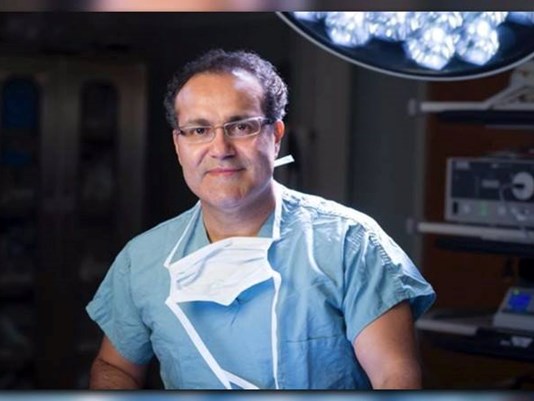From undocumented immigrant, to migrant worker to brain surgeon. That’s the story of one of the country’s top neurosurgeons and the chair of Neurological Surgery at the Mayo Clinic.
Doctor Q, or Alfredo Quiñones Hinojosa, said his path to becoming a brain surgeon started in 1987 as a Mexican migrant worker in California. He picked everything from tomatoes to cotton.
It’s a journey that was challenging, but not impossible; a message he hopes will inspire others.
We caught up with Doctor Q. before he was getting ready to head into surgery at the Mayo Clinic.
Sitting around reflecting on the past isn’t what he is typically used to, as the chair of Neurologic Surgery, between long shifts and work finding a cure to brain cancer.
“I just remember growing up playing around as a little boy, no worries I remember in front of my house when it rained we used to have this accumulation of water and I thought that was like the Sea of Cortez,» Dr. Q said.
It was that same imagination and belief that all things were possible that would push him to pursue a better life “north” in the United States. But with gain, there’s often loss in life.
The eldest of five siblings, Quinones says his earliest memory is the day his baby sister died of Colitis, which is inflammation of the inner lining of the colon, the No. 1 killer of children in developing countries.
“I saw how my parents suffered from this and those were my earliest memories. I remember seeing my little sister in this little casket,» he said.
His interest in medicine may have stemmed from that loss. In 1987, at just 19 years old and unable to speak English, Quinones came to the U.S.
He lived in a trailer and he took jobs in the fields in California’s San Joaquin Valley.
“When I was a tomato picker, I wanted to be the best in the world but I had this competition with my coworkers from Mexico and Latin America,» he said. «We would vote, who was the fastest the best the most efficient.”
And he wasn’t just an expert at picking tomatoes. Dr. Q picked corn, grapes, cauliflower, cantaloupe and even cotton.
“I always strived to be the best so that hasn’t changed when I went to UC Berkeley in ’91. I wanted to be the best undergraduate student. When I went to Harvard I wanted to be the best medical student,» he said.
But Quiñones says he’d be lying if he said he never faced discrimination during his years as a migrant worker, a group often referred to as our nation’s invisible population.
Although that conclusion wasn’t always so clear to Quiñones, it took years for him to even tell others about his humble beginnings.
“I knew the stereotype and the way people felt from people like me. The fact that I came from nothing,» he said.
But what he once believed was his greatest downfall would end up defining who he was. Now when people ask Quinones “What are you?” he responds: “I say I am Mexican and I am American. Mexican in the sense that’s where my roots come from and American because I feel like this country opened its doors you know welcomed me.”
And it’s hard to take bigotry seriously when, in his world under his surgical scope, we are all the same.
“I look at brains of people who are Christian, Muslim, Jewish people who are from china, Mexico and Europe and no distinctions,» Dr. Q said.
It’s that way of thinking in combination with his journey from migrant worker to brain surgeon that has Hollywood calling Brad Pitt’s production company “Plan B” has teamed up with Disney to develop a movie based on his life.
“The story of the immigrant, the struggle of those who come to America and have a dream,» he said.
The film is set to hit theaters as early as next year.


